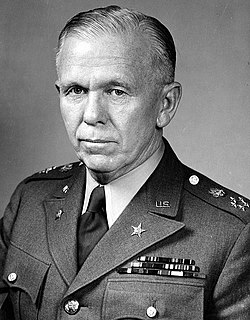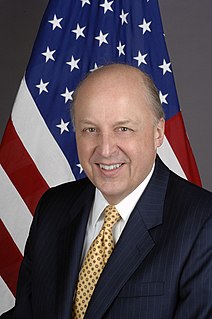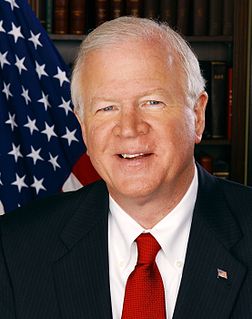A Quote by Marco Rubio
If you vote against the Defense Authorization Act in the Senate, you would also veto it as president.
Related Quotes
It is true that I voted against the National Defense Authorization Act, because when I campaigned in Texas I told voters in Texas that I would oppose the federal government having the authority to detain U.S. citizens permanently with no due process. I have repeatedly supported an effort to take that out of that bill, and I honored that campaign commitment.
President Bush, whose scorn for journalists is balanced by a soft spot in his heart for the conglomerates they work for, threatens to veto the Senate action. Keep in mind that when the public was asked to submit comments to the FCC about consolidation, only one percent approved it. The President may not be listening, but the Senate is, and the public won this round. The House has a similar resolution under consideration.
I do not agree with the use of 'signing statements' to effectively act as a line-item veto, except when the President believes a law or a provision within a law is unconstitutional.In general, if a President signs a law, they are committing themselves to enforcing it. If they don't believe it should become a law, they should veto it.
Literally minutes before the Senate cast its vote, the administration sought to add the words 'in the United States and' after 'appropriate force' in the agreed-upon text. This last-minute change would have given the president broad authority to exercise expansive powers not just overseas-where we all understood he wanted authority to act-but right here in the United States, potentially against American citizens. I could see no justification for Congress to accede to this extraordinary request for additional authority. I refused.
































